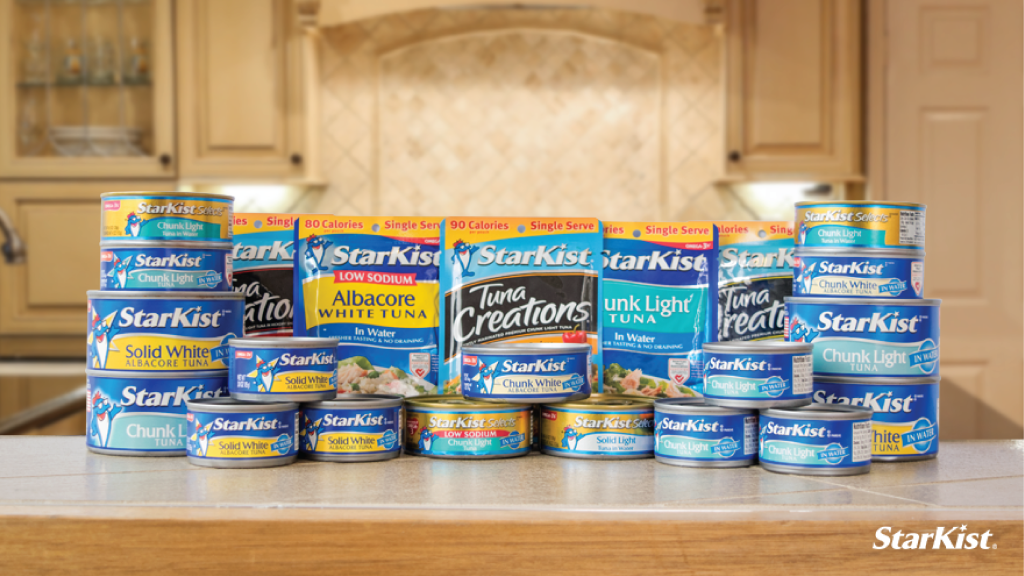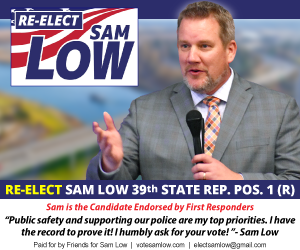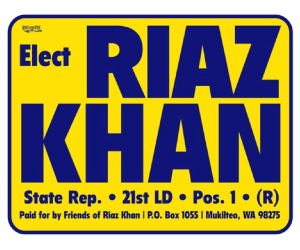OLYMPIA—Back in June, 2020, Washington State Attorney General Bob Furguson filed a civil lawsuit against Star-Kist, one of the world’s largest canned tuna manufacturers and the former CEO of Bumble Bee Foods, another large tuna manufacturer, over a price-fixing conspiracy that drove up the cost of packaged tuna for more than a decade, costing Washingtonians at least $6 million, according to an Attorney General’s Office press release.
This lawsuit was a historic first for Washington, being the first state ever to bring a case over this conspiracy forward.
That lawsuit came to a settlement last year allowing Furguson’s office to recover nearly $40 million in resolutions from 15 out of 19 broiler chicken producers named when the case went to trial in 2021. Another trial is set for this October for the remaining three producers: Foster Farms LLC, Wayne-Sanderson Farms, Inc., and House of Raeford Farms, Inc.
Just last month Furguson’s Office announced it would be distributing $40.6 million out of these funds to hundreds of thousands of low-income families across Washington for financial restitution.

“When powerful interests break the law and harms Washingtonians, my office holds them accountable, and prioritizes getting money back to those who were most impacted,” Ferguson said. “Washington families were cheated by corporate price-fixing conspiracies they knew nothing about – and now those who felt this gouging most severely are receiving checks from my office. The holiday season puts a financial strain on families, and we hope Washingtonians are helped by these checks.”
The decision is not just limited to housed individuals, however, Brionna Aho, Communications Director for the Washington State Attorney General’s Office, informed the Lynnwood Times.
According to the Washington State Department of Commerce’s annual Point-in-Time (PIT) count, the number of unhoused individuals rose 12%, from 2022 to 2023, statewide. That study estimates the total number of homeless individuals in Washington during 2023 was nearly 50,000, including sheltered homeless and those enrolled in a permanent housing program.
The Attorney General’s Office did want to prioritize direct consumer restitution with the consumer most affected by price-rigging, as is typical with consumer protection and antitrust cases.
“It’s fair to assume it will be more challenging to find a mailing address for unhoused individuals, so those individuals may be more likely to have checks returned in the first phase, but we did not exclude halfway houses or homeless shelters. It’s fair to assume people did receive checks at homeless shelters and halfway houses, but we would need time to confirm that,” said Aho. “It’s very likely that checks went to people staying with friends and relatives because they lacked permanent shelter. If unhoused individuals meet the income qualification, and did not receive a check in the first round, they should file a claim.
Aho continued that Ferguson, and his office, were always transparent about where the money would go from the start, both in the courts and publicly.

“We repeatedly and consistently told both the courts and the public that if successful in these price-fixing cases, we would send recoveries to Washingtonians,” said Aho. “Direct consumer restitution is always our primary objective in consumer protection and antitrust cases. That is not always possible, and in this case, it was more difficult than some, but it is always our primary objective.”
Beginning with the initial press release published on June 2, 2020, after the first lawsuit relating to tuna fish was officially filed, Ferguson’s Office stated: “The lawsuit asks the court to order the defendants pay restitution to Washington consumers as well as the costs and fees of bringing the case.”
Additionally, in the filed complaint the first sentence reads “Plaintiff, State of Washington, through its Attorney General, brings this action as parens patriae on behalf of persons residing in the State against Dongwon Industries Co., Ltd. (“Dongwon”); StarKist Company (“StarKist”); and Christopher Lischewski (collectively hereinafter “Defendants”) seeking restitution, penalties, costs and fees, and injunctive relief.”
On October 26, 2021, Ferguson’s Office filed its price-fixing lawsuit against 19 chicken producers stating: “In addition to stopping the companies’ conduct, Ferguson is seeking restitution for Washington consumers and businesses and civil penalties.” Once again, the first sentence of this complaint stated that the office was “seeking restitution, penalties, costs and fees, and injunctive relief.”
On October 2022, Ferguson’s Office held a press conference announcing the recovery of $10.5 million from multiple co-conspirators in the chicken price-fixing scheme where Attorney General Ferguson stated that “our job is to recover as many millions of dollars as we can, and ultimately return that to Washingtonians.”
In a follow up press release Ferguson’s Office stated that it was “working on a plan to distribute these recoveries to assist Washingtonians harmed by the price-rigging conspiracy.”
Brionna Aho informed the Lynnwood Times the AG’s Office repeatedly and consistently told both the courts and the public that if successful in these price-fixing cases, it would send recoveries to Washingontonians, housed or unhoused. It is the priority of consumer protection and antitrust cases to focus on direct consumer restitution to impacted Washingtonians.
“In the last ten years, we have provided more than $270 million in direct consumer restitution as a result of legal victories in consumer protection and antitrust cases. In total, we’ve recovered approximately $2 billion for Washingtonians, which includes hundreds of millions of dollars in debt forgiveness and more than $1 billion from the opioid epidemic that is all going to local governments and the state to address the fentanyl crisis,” Aho added when asked why the funds could not be directed to those living in halfway houses or drug rehabilitation programs.
There are two phases to this project, Aho explained. The first phase is sending checks to everyone the AG’s Office believes will qualify based on the information provided by a contractor. The idea is to make it as easy as possible for people to get the checks.
“We know that claims processes have a low response rate. In 2019, the FTC published a report “on what it believes to be the most comprehensive study ever conducted on consumers’ response to class action settlements” and found that the median claim rate was 9%. The weighted claim rate, which takes into account the size of the class, was only 4%,” said Aho.
The second phase is the claims process, which is still ongoing. The AG mentioned that no data set is perfect, especially one this large, Aho continued. There will be some people who qualify who did not receive checks in the first round, which is why the AG’s Office does a claims process – to ensure everyone has access to the funds.
The deadline to apply for these restitution funds is June 5, 2024. The $40.6 million in financial restitution is limited to households whose income is at or below 175% of the federal poverty level.
Approximately 402,200 Washingtonians have already received checks, the Attorney General said. More than 1.2 million Washingtonians, or approximately 15% of the state population live in households that received or will receive checks with single-person households receiving a $50 check and multi-person households receiving a $120 check.
The first round of checks were mailed on Tuesday, December 7, 2023. World Tuna Day is observed on May 2, 2024.
Editor’s Note, January 30, 2023: The Lynnwood Times previously reported the AG’s tuna and chicken settlement funds were exclusively available to housed individuals and not unhoused individuals. The Attorney General’s Office clarified this is not the case. The funds are available regardless of being housed or unhoused just so long as the individual or family applying fall below 175% of the federal poverty level. This article has been updated to reflect this.



















